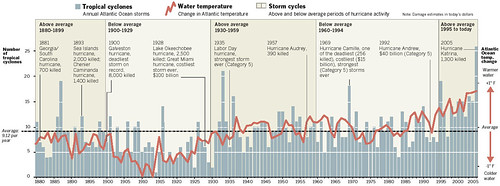A Bartlett PSA
Dan Bartlett says taxes will have to increase in future years.
As the end of the year approaches, tax bills loom. That may not seem particularly pleasurable, but enjoy it while you can - taxes are going up. Not right away, economists say, but almost certainly in the coming years.Kash at Angry Bear has this great graph of Federal Revenues and Spending excluding Social Security from 1962-2010. Doesn't it seem like revenue is a bit low at present?
And not just liberals are saying such things.
While the Bush administration and its Republican supporters in Congress still contend that they can deal with fiscal imbalances by clamping down on unnecessary spending, some of their close allies are beginning to argue that the budgetary circle cannot be squared with spending cuts alone.
"The current trend points to tax increases in the long run," said Brian M. Riedl, lead budget analyst at the Heritage Foundation, a conservative research group opposed to raising taxes. "The political will to make the difficult decisions on spending is lacking."
Some in big business also seem ready to bite the bullet. The Committee for Economic Development, a research group that often represents the views of Wall Street and major corporate figures in public policy debates, issued reports this year arguing for tax increases plus spending restraints to avert what it called a fiscal crisis in the offing.
Unhappiness over the projected budget deficit is eroding conservative support for the White House. Bruce Bartlett, a leader of the supply-side tax revolution who worked as an economic aide to President Reagan and the first President Bush, has turned on the current president in a coming book, "The Impostor: How George W. Bush Bankrupted America and Betrayed the Reagan Legacy," excoriating what he sees as the government's spending spree over the last five years.
Mr. Bartlett, a conservative economic thinker who for years argued that cutting taxes was the best way to "starve the beast" and restrain government's growth, now recommends the introduction of a value-added tax - a kind of sales tax used in Europe and most other advanced industrial nations - to bring in the large amounts of new revenue he deems necessary to close the enormous budget gap.
"I do believe tax increases are absolutely inevitable," Mr. Bartlett said.
It appears that the agenda is for Value Added Tax (VAT).
Mr. Bartlett would go further. Reversing his previous stance that low taxes would force lawmakers onto a spending diet, he now says that adding a steadily increasing value-added tax is the best way to deal with what he now sees as an inevitable rise in federal spending, to as much as 30 percent of the gross domestic product, to cover expanding entitlements for baby boomers.
"Whose beast was being starved?" Mr. Bartlett asked. "There's no evidence that it was working. We need to deal with reality."



